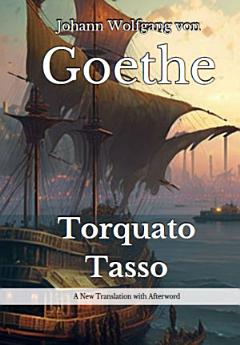Torquato Tasso
About this ebook
Observing Tasso’s turbulent interactions with the pragmatic statesman Antonio and his idealized, unattainable admiration for Princess Leonora, the play meticulously dissects the collision between raw poetic sensibility and the demands of courtly decorum, diplomacy, and unyielding power structures. Drawing implicit parallels to Goethe’s navigation of Weimar’s aristocratic circles while echoing the psychological intensity of Shakespearean tragic heroes, the work transcends its specific setting to articulate a universal tension: the artist’s struggle for autonomy and recognition within systems inherently designed to control or commodify the creative spirit. Tasso’s final, devastating realization of his irreconcilable isolation—"And if man is silent in his pain, / A god gave me to speak my suffering"—condenses the play’s tragic power, cementing its status as a profound meditation on the vulnerabilities and necessities of the artistic temperament in the social world.
This critical reader's edition offers a fresh, modern translation of the original manuscript in Fraktur (the old German script), designed to help any curious reader delve into Goethe's works, using clear, contemporary language and straightforward sentences to illuminate his complex ideas. It includes supplementary material providing autobiographical, historical, and linguistic context to this 18th century work- including an afterword by the translator discussing Goethe’s history, impact, and intellectual legacy, alongside an index of the philosophical concepts he explored—with a focus on Romanticism and Classicism. Included is a comprehensive chronological list of his published writings and a detailed timeline of his life, highlighting the personal relationships that profoundly influenced his philosophy.











